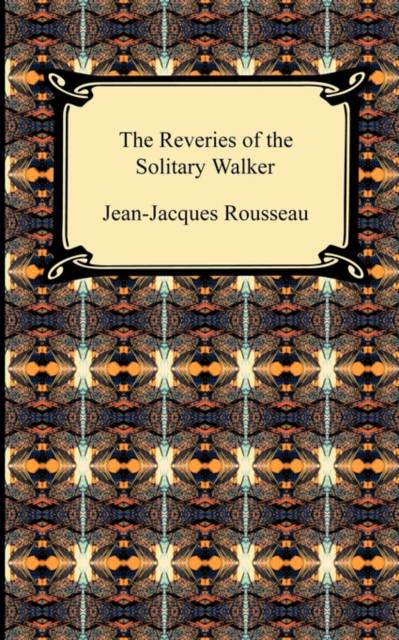
- Afhalen na 1 uur in een winkel met voorraad
- Gratis thuislevering in België vanaf € 30
- Ruim aanbod met 7 miljoen producten
- Afhalen na 1 uur in een winkel met voorraad
- Gratis thuislevering in België vanaf € 30
- Ruim aanbod met 7 miljoen producten
Zoeken
€ 14,95
+ 29 punten
Uitvoering
Omschrijving
Born on June 28, 1712, in Geneva, the French philosopher, novelist and essayist Jean-Jacques Rousseau was one of the most prominent and definitive minds of the Enlightenment. Self-taught, Rousseau dabbled in many fields, keeping journals of his interests in science, mathematics, music, astronomy, botany, music, literature, and philosophy. He achieved sudden success and subsequent fame with his "A Discourse on the Arts and Sciences", a work that cemented his pivotal place in the history of The Enlightenment and philosophy as a whole. "The Reveries of the Solitary Walker" is an unfinished work, one of the last composed in Rousseau's lifetime. The book is composed of ten chapters, called "walks." Walks eight and nine were never revised, and the tenth walk is incomplete. Regardless, this work, like others written near the end of his life, is greatly autobiographical, consisting of descriptions of walks he took around Paris, as well as further comment on arguments he previously made, concerning education and political philosophy, among other subjects.
Specificaties
Betrokkenen
- Auteur(s):
- Uitgeverij:
Inhoud
- Aantal bladzijden:
- 88
- Taal:
- Engels
Eigenschappen
- Productcode (EAN):
- 9781420939187
- Verschijningsdatum:
- 1/01/2010
- Uitvoering:
- Paperback
- Formaat:
- Trade paperback (VS)
- Afmetingen:
- 127 mm x 203 mm
- Gewicht:
- 104 g

Alleen bij Standaard Boekhandel
+ 29 punten op je klantenkaart van Standaard Boekhandel
Beoordelingen
We publiceren alleen reviews die voldoen aan de voorwaarden voor reviews. Bekijk onze voorwaarden voor reviews.








